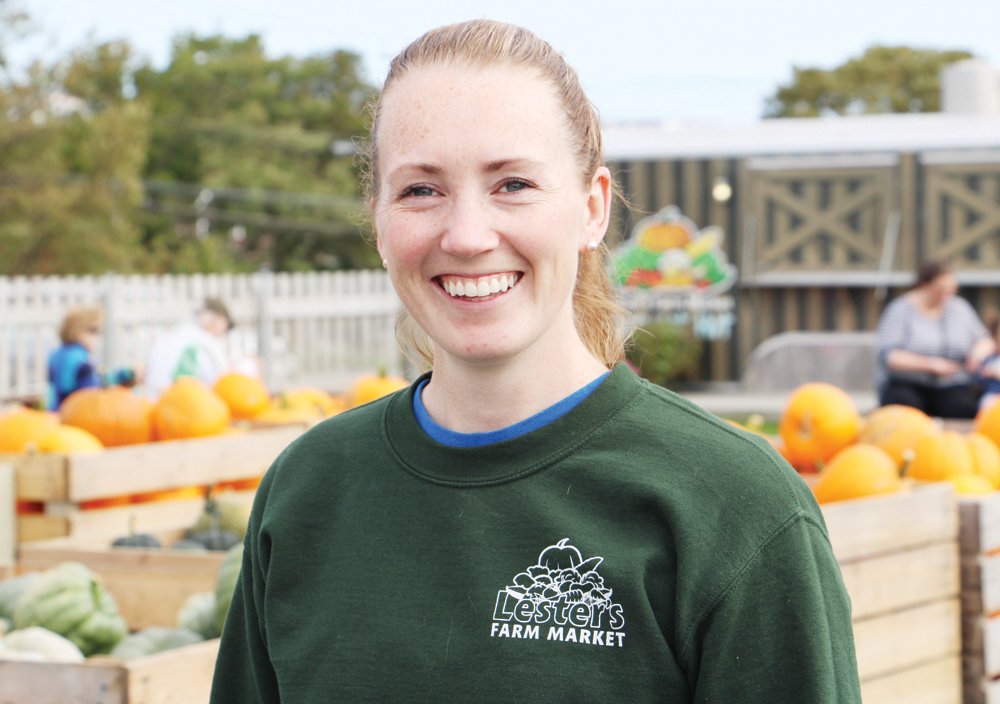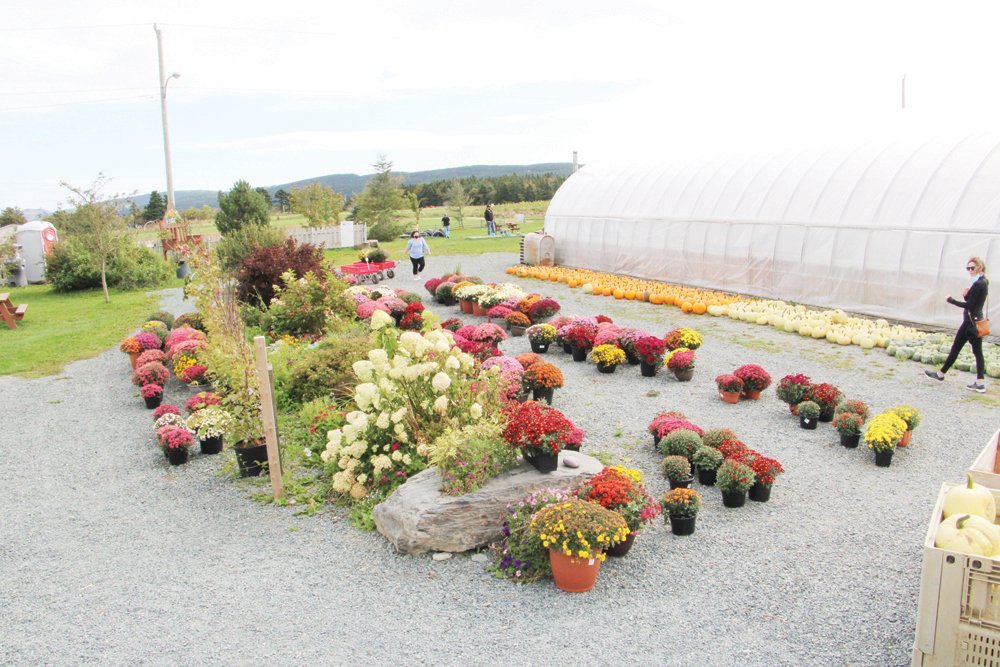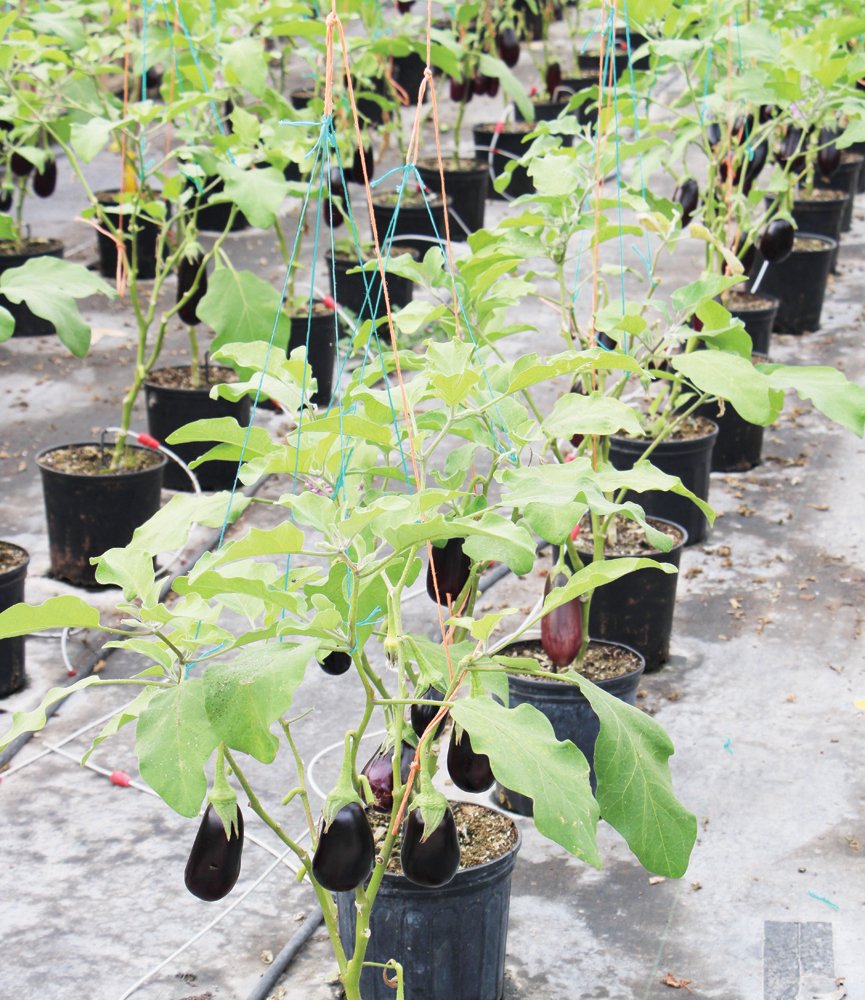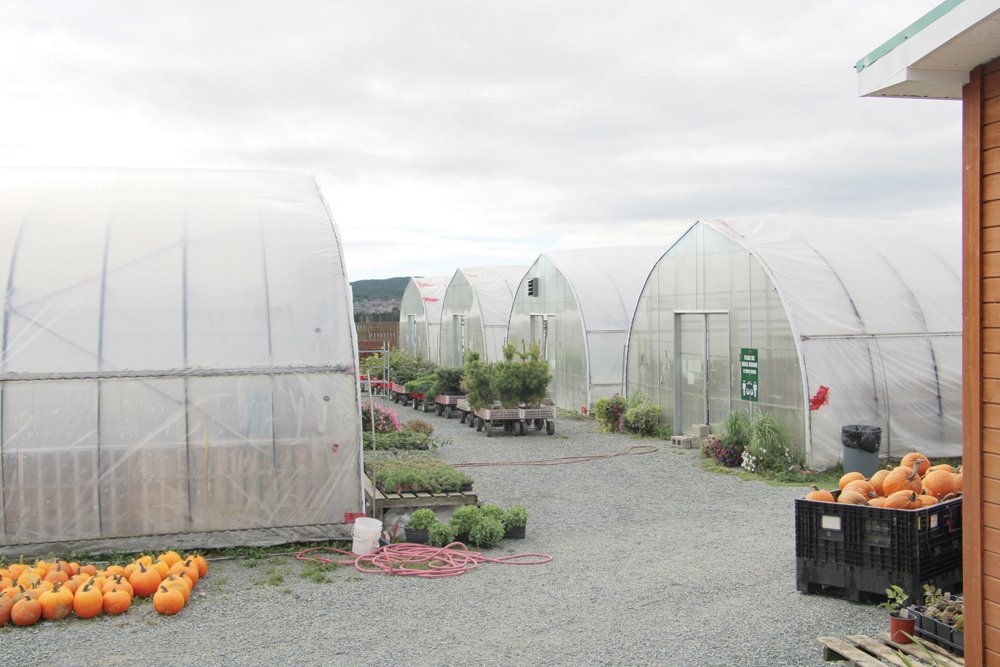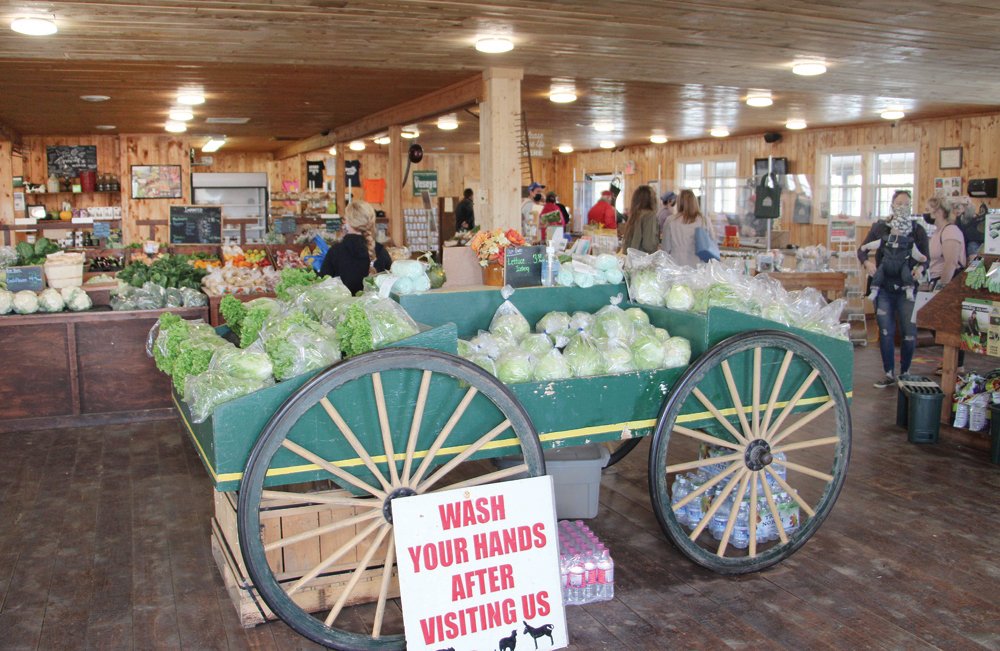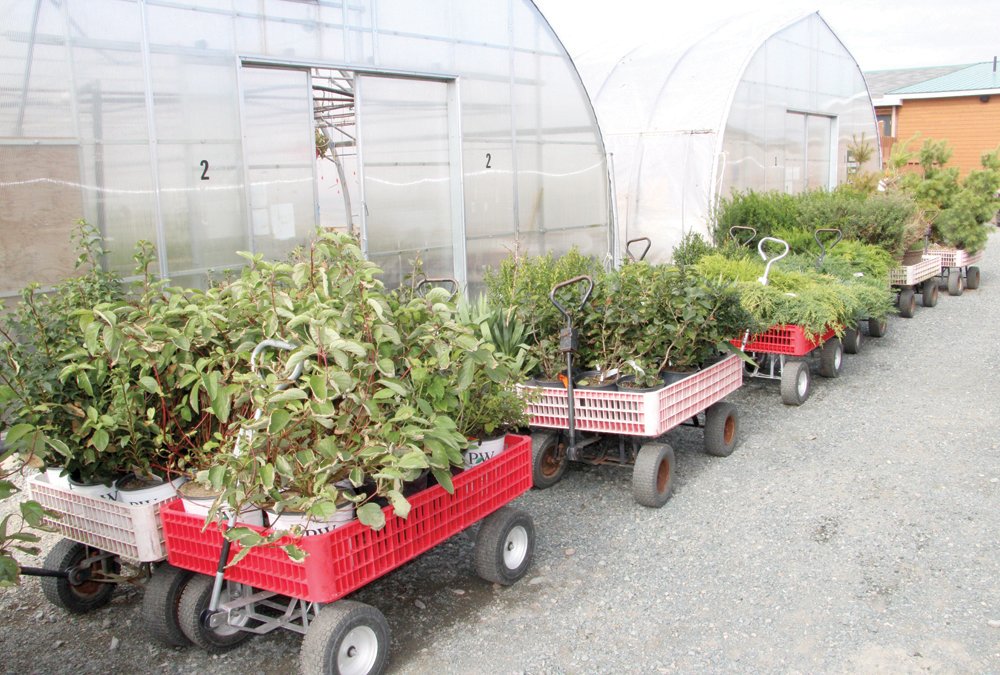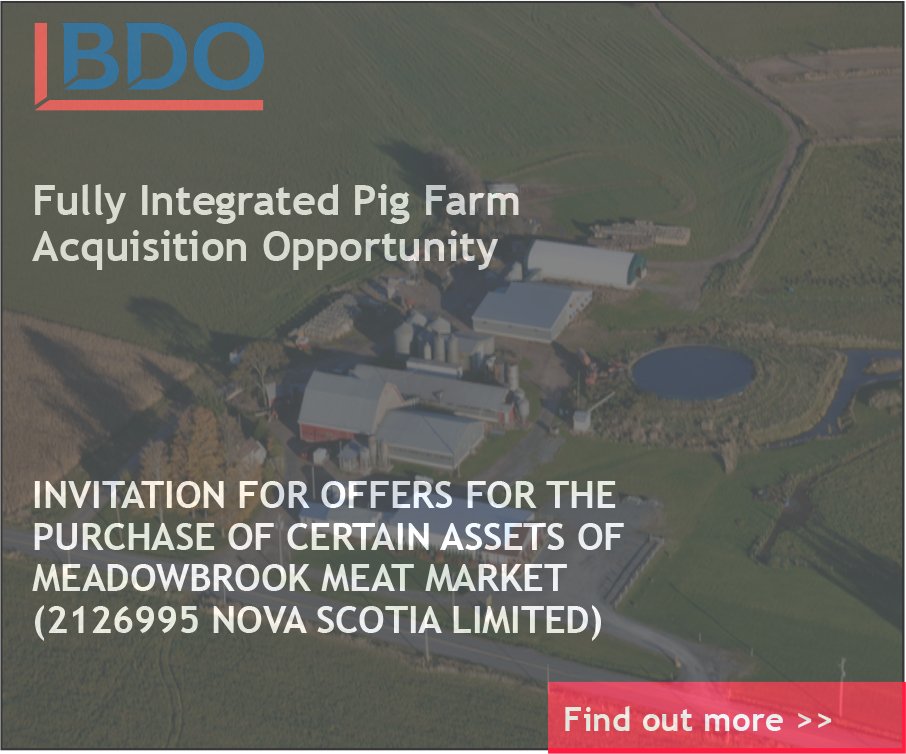Lester’s Farm Market now an institution in eastern N.L.
/by George Fullerton
On a Saturday morning in mid-September, Lester’s Farm Market, on the edge of St. John’s, N.L., has a full parking lot, with customers loading up on fresh produce, baked goods, flowers, and other items.
Sixth-generation farmer Susan Lester manages the family-owned market. While Susan serves as market manager and the default public face of the operation, her parents John and Mary and her brothers Chris and Brad all have their responsibilities in the enterprise, which farms 120 acres and operates several greenhouses.
The Lester family has farmed on the edge of St. John’s for more than 160 years. John and Mary farmed for a short period on P.E.I. before returning to Newfoundland in 1983. John’s brother Colin was established as the dairy farmer on one section of the Lester land. Upon returning to Newfoundland, John and Mary started growing vegetables on fewer than 20 acres to supply local wholesalers.
Susan explained that the wholesale market is essentially based on price, so sales are impacted by offshore crop production and transportation issues.
“My mother grew tired of periodically seeing their crops going to waste rather than to a market, so she set up a roadside table and began offering produce for sale,” said Susan. That was in 1994.
The initial success of the roadside table quickly led to the construction of a small building and more diversified produce. The business was moved into the current larger market building in 1999 and a dairy bar was added. A bakery was added in 2011. It’s now an eclectic farm market and something of a cultural institution in the greater St. John’s community.
Through the late 1990s, the wholesale side of the business shrank as the direct farm market sales increased. The Lesters ceased wholesale sales completely in 2003.
START ’EM EARLY
Susan explained that she and her brothers Chris and Brad grew up working alongside their parents and the operation’s workers.
“Our parents nurtured our interest in farming but also emphasized that we should pursue other interests and gain post-secondary education,” she said.
Brad studied engineering at Memorial University of Newfoundland and Chris completed a fire fighting certificate prior to returning to work on the family farm. Susan earned arts and education degrees at Memorial University.
Brad and Chris focus on crop production and land and infrastructure development. Susan said that her brothers have carried out a lot of land development, including drainage projects and rock removal. She said that while they employ new land development technologies, it boils down to real hard work.
The Lesters also work with their neighbouring dairy farming relatives and use their combined land to the mutual benefit of both operations’ crop rotation plans.
Today, the Lesters grow more than 100 varieties of fruits and vegetables.
In 2002, a two-acre strawberry U-pick was launched, with more land planted to strawberries every year. Around the same time, the Lesters produced their first Sweet corn crop. Today, the corn crop is turned into a corn maze prior to harvest and the corn stalks are sold for autumn house decorations along with hay bales and pumpkins.
In the challenging Newfoundland environment, the Lesters have incorporated season-extending technologies such as greenhouses, grow tunnels, and plastic mulch. They use greenhouses to grow tender crops such as tomatoes, peppers, cucumbers, and eggplant, as well as microgreens and hydroponic lettuces.
The farm market includes a large cooler in the basement to ensure the freshness of produce on the shelves. Vegetables are washed and packaged in a large warehouse-type structure which also has climate-controlled winter storage for vegetables.
The Lesters also grow hundreds of varieties of ornamental, vegetable, and herb bedding plants for sale at two locations in greater St. John’s, one of which is the home farm. And they sell trees, shrubs, and gardening supplies.
AG AWARENESS
“In addition to selling our produce, my mother added an informal education strategy to the farm market to make customers more aware of the significance of agriculture and more specifically local Newfoundland food production,” said Susan. “The farm market added a petting barn and offered other farm experiences.”
With her education training, Susan has built on her mother’s ambition to educate customer families about agriculture. One of the farm’s initiatives is the Lil’ Lester’s summer program, which involves groups of children meeting at the farm weekly to plant veggies and flowers, harvest their crops, interact with animals, and learn some farming basics.
“We have tailored our education programs for different ages and we engage children – from toddlers with their parents through to youths,” said Susan, adding that about 400 children have taken part in the program every year since it began in 2011. “We like to have the children help get the seeds in the ground and then have them return through the growing season to see how the plants grow and finally to see the harvest and go home with produce and taste it cooked for the dinner table.”
The farm also features the Harvest Hut food truck.
“As we developed different activities to engage our customers, we realized they would leave and go to fast food services for lunch and then return to continue with our activities,” said Susan. “It occurred to us that we could offer snacks and meals based around crops in season. We work with a number of chefs to develop menus that change with the availability of different crops.”
The Lesters also use their greenhouses for craft fairs and their “harvest feasts.”
“We started the craft fairs in 2018 as an opportunity for our customers to meet the crafters who produce some of the non-food products we sell in our farm market,” said Susan. “We started with an annual craft fair in the greenhouse to limit the impact potential for bad weather. The customer response and feedback was so great that we have expanded to four craft fairs a year.”
The “harvest feast” tradition was also started in 2018 and involves local chefs preparing a unique and exciting menu using Lester produce.
RAISING MONEY
Giving back to the community is important for the Lesters. Chris developed the idea to host the farm’s Pumpkinfest to support community development. Started in 2001, Pumpkinfest features autumn contests, games, treats, and fun at Lester’s Farm Market. Over its 20-year run, it’s raised more than $300,000 for community programs.
With COVID-19 restrictions, Pumpkinfest was expanded from a one-day event to being held every weekend in October. Unsure how the change would impact attendance, Susan said that the extended schedule resulted in increased attendance overall.
The Lester’s Farm Market operation is a major employer in the region.
“We have up to 90 employees in our peak growing season,” said Susan. “In addition to our family, we have around 15 full-time key employees working in the market, equipment and infrastructure maintenance, and crop production.”
And there are plenty of young people working there.
“In the field season, we hire more people and about 80 percent are students,” said Susan. “We have a great base of student employees and we see a return rate close to 90 percent year to year. Farm labour often sounds great for a summer job for a lot of people, but it turns out to be not as attractive as imagined for some, and they soon weed themselves out. But for the ones who enjoy the work and the experience, they are a very important contribution to our success.”
Lester’s Farm Market maintains an enthusiastic social media presence on Facebook, Instagram, and Twitter. Their content is fresh and timely, letting customers know what produce is available and what events are offered at the farm.
